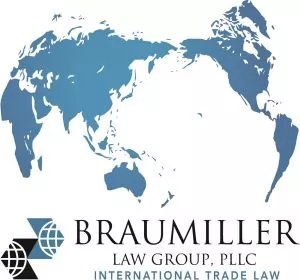- with Finance and Tax Executives
- with readers working within the Chemicals and Healthcare industries
On Sunday, July 27th, the White House announced a new trade deal with the European Union (EU), just days ahead of President Trump's August 1st deadline to either reach a deal or impose tariffs.
Under the new trade deal, the EU will pay a 15% tariff on almost all goods, including automobiles and automobile parts, pharmaceuticals, and semiconductors. Additionally, the sectoral tariffs on steel, aluminum, and copper will remain at 50% with no reductions. In contrast, the EU has eliminated most tariffs on U.S. goods.
Other highlights of the deal include:
- Massive EU Investment in the U.S.: The EU will invest $600 billion in the U.S. over the course of President Trump's term. This new investment is in addition to the over $100 billion EU companies already invest in the U.S. every year.
- Unleashing American Energy: The EU will purchase $650 billon of U.S. energy exports through 2028.
- Tariff Barriers: The EU will work with the U.S. to eliminate tariffs in various sectors and will provide meaningful quotas for other products, which when combined will create commercially meaningful market access opportunities for a significant amount of U.S. goods exported to the EU, supporting high-quality American jobs.
- Non-Tariff Barriers for U.S. Industrial Exports: The EU will work to address a range of U.S. concerns related to various EU requirements that are burdensome to U.S. exporters, particularly small and medium-sized businesses, including through efforts to eliminate the red tape that U.S. exporters face when doing business in the EU.
- Non-Tariff Barriers for U.S. Agriculture Exports: The U.S. and the EU intend to work together to address non-tariff barriers affecting trade in food and agricultural products, including streamlining requirements for sanitary certificates for U.S. pork and dairy products.
- No-Free Riders: The U.S. and the EU will establish strong rules of origin to ensure that the benefits of this agreement flow directly to the U.S. and the EU, not to third party countries.
- Barriers for Digital Trade: The U.S. and the EU intend to address unjustified digital trade barriers. In that respect, the EU confirms that it will not adopt or maintain network usage fees. Furthermore, the U.S. and the EU will maintain zero customs duties on electronic transmissions.
- Economic Security: The U.S. and the EU agree to strengthen economic security alignment to enhance supply chain resilience and innovation. The two sides will take complementary actions to address non-market policies of third parties, as well as cooperating on inbound and outbound investment reviews, export controls, and duty evasion.
- Commercial Deals: The U.S. and EU recognize a series of major commercial agreements across key sectors—including energy and semiconductors—that will further expand U.S. exports to the European market.
- Military Equipment: The EU agreed to purchase significant amounts of U.S. military equipment.
For the fact sheet, please see https://www.whitehouse.gov/fact-sheets/2025/07/fact-sheet-the-united-states-and-european-union-reach-massive-trade-deal/?utm_source=wh_social_share_button
Braumiller Law Group PLLC will continue to provide updates on new tariffs and trade agreements as necessary.
Check out our new Digital Magazine Get the inside scoop on the Braumiller Law Group & Braumiller Consulting Group "peeps." Expertise in International Trade Compliance.
The content of this article is intended to provide a general guide to the subject matter. Specialist advice should be sought about your specific circumstances.


